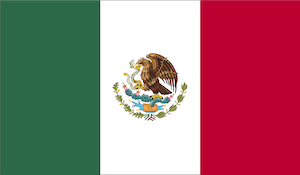Is Peña Nieto Facing a Mexican Spring?
Two years ago, Enrique Peña Nieto took office as Mexico’s president, under the banner of a renovated Partido Revolucionario Institucional (PRI) and with a promise of a brighter economic, social and political future. Only two months after he took office, Thomas L. Friedman remarked on that promise in an article titled “How Mexico Got Back … Read more
Why I Wasn’t a Fat Kid in Mexico
I grew up in Manzanillo and Monterrey, two Mexican cities that are opposites in many ways. Manzanillo is on the southwest coast of Mexico; Monterrey is in the dry northeastern desert. Manzanillo is a small town; Monterrey is one of the country’s most important urban industrial centers. In Manzanillo, people are laid back and relaxed, … Read more
A Focus on Security Sidelines Education in Mexico
This was supposed to be a banner year for Mexican President Enrique Peña Nieto. In the last quarter of 2013, his party was able to push through what were then called historical structural reforms to modernize the Mexican education system and boost the national economy and energy sector. If 2013 was the year for lawmaking, … Read more
Monday Memo: Colombia Peace Talks — U.S. Refugee Status — Petrobras Arrests — Cuba Tourism — Pemex Investments
This week’s likely top stories: Colombia’s peace talks suspended over kidnapping; U.S. will grant refugee status to select minors from Central America; Brazilian police arrest 27 in Petrobras corruption scandal; Cruise ship tourism is booming in Cuba; Pemex invests millions in hydrocarbon production and exploration. Kidnapping Halts Colombian Peace Talks: Colombian President Juan Manuel Santos … Read more
Latin American Leaders Seek Chinese Investment at APEC
Beyond seeking to deepen trade links with Asia, the leaders of Chile, Peru and Mexico—the three Latin American member states of the Asia-Pacific Economic Cooperation (APEC)—used their time in Beijing to push for greater Chinese investment in their countries. The three leaders also backed a Chinese-led proposal for a Free Trade Area of the Asia … Read more
Monday Memo: Brazil Military Drills — Mexico High-Speed Rail — Colombia FARC Trials — AT&T Expands — Mexico Protests
This week’s likely top stories: Brazil’s military launches training operation in Amazon; Mexico cancels high-speed rail contract to Chinese-led consortium; Indigenous court in Colombia convicts seven FARC members; AT&T purchases Iusacell; Mexico erupts in protests over reported discovery of remains of the 43 missing students. Brazilian Military Trains in the Amazon: According to the chief … Read more
Thousands Protest in Mexico Over Missing Students
Thousands of Mexicans from across the country took to the streets yesterday to demand answers about the fate of 43 students who are still missing after they disappeared in the city of Iguala in late September. The protest is part of a 72 hour strike staged by nearly 100 universities throughout Mexico and also includes … Read more

Yes: Violence and Murder Are Decreasing in Mexico
When Mexican President Felipe Calderón left office in 2012, the nation’s war on the drug cartels had already claimed 60,000 lives. Now, two years into the presidency of his successor, Enrique Peña Nieto, security conditions are still far from praiseworthy, but have improved in several key areas. Homicides, the most reliable indicator for measuring public … Read more

No: Mexican Homicide and Crime Rates Remain High
As a presidential candidate, Enrique Peña Nieto promised “adjustments,” rather than any major changes, to the security strategy of the outgoing administration—and that is precisely what he has delivered as president. While there have been subtle—and not so subtle—shifts from the policies pursued by former President Felipe Calderón, there has not been a clear break … Read more
Day of the Dead Celebrations Unite Food and Memory
This is one dinner party where the guests of honor are only there in spirit. But what a feast it is! On Day of the Dead, the holiday that starts at midnight on the day following Halloween, the souls of lost relatives are reunited with the living. And like so many other traditions, food is … Read more
IACHR Urges U.S. to Close Immigrant Detention Centers
The Inter-American Commission on Human Rights (IACHR) urged the United States yesterday to close detention centers for immigrant children and their families. IACHR member Felipe González noted that the Commission has continually affirmed that children should not be held in detention centers. However, the U.S. currently has three detention centers open in Pennsylvania, Texas and … Read more
Gulf Cartel Leader in Federal Court
Juan Francisco Sáenz-Tamez, the 23-year-old head of Mexico’s Gulf Cartel, has made his first court appearance, the U.S. Department of Justice announced on Tuesday. Sáenz-Tamez was arrested by federal officials in Edinburg, Texas on October 9 and faces life in federal prison if convicted of drug charges. Sáenz-Tamez was arrested on charges of money laundering … Read more

Hard Talk
Is Mexico’s security situation improving? Yes: Eduardo Guerrero; No: Alejandro Hope
Anti-Riot Police Sent to Guerrero After Protesters Set Fire to Government Palace
On Monday, hundreds of demonstrators protested at the Palacio de Gobierno (Government Palace) in Chilpancingo, in the Mexican state of Guerrero, demanding that the government take further action to locate the remaining 43 students that went missing on September 26. The demonstrators called for the resignation of Governor Ángel Aguirre, vandalized various government buildings and … Read more
Jeh Johnson Defends Security of U.S.-Mexico Border
From an influx of Central American minors to concerns about ISIL and Ebola, the public image of the U.S.-Mexico border has taken a beating in recent weeks. Fortunately, Secretary of Homeland Security Jeh Johnson rebutted some of the most common misperceptions in an important speech at the Center for Strategic and International Studies (CSIS) in … Read more



